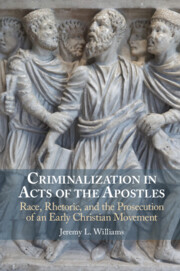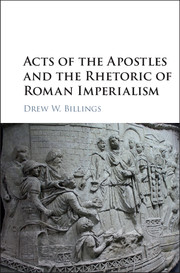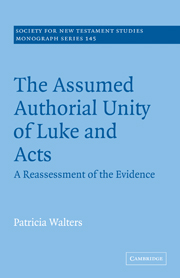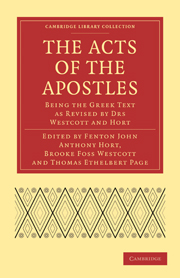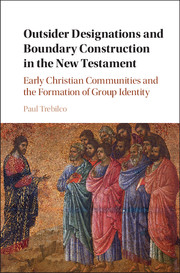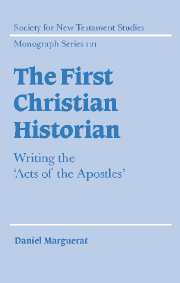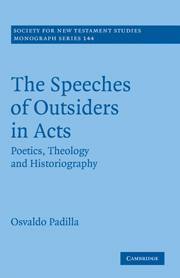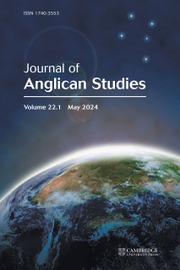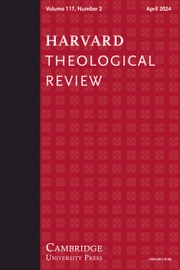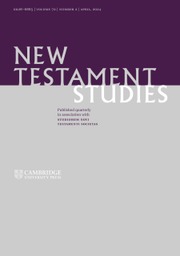Criminalization in Acts of the Apostles
Race, Rhetoric, and the Prosecution of an Early Christian Movement
$110.00 (F)
- Author: Jeremy L. Williams, Texas Christian University
- Date Published: October 2023
- availability: Available
- format: Hardback
- isbn: 9781009366373
$
110.00
(F)
Hardback
Other available formats:
eBook
Looking for an examination copy?
This title is not currently available for examination. However, if you are interested in the title for your course we can consider offering an examination copy. To register your interest please contact [email protected] providing details of the course you are teaching.
-
In this study, Jeremy L. Williams interrogates the Book of Acts in an effort to understand how early Christian texts provide glimpses of the legal processes by which Roman officials and militarized police criminalized, prosecuted, and incarcerated people in the first and second centuries CE. Williams investigates how individuals and groups have been, and still are, prosecuted for specious reasons – because of stories and myths written against them, perceptions of alterity that render them subhuman or nonhuman, the collision of officials, and financial incentives that foster injustices, among them. Through analysis of criminalization in Acts, he demonstrates how Critical Race Theory, Black studies, and feminist rhetorical scholarship enables a reconstruction of ancient understandings of crime, judicial institutions, militarized police, punishment, and socio-political processes that criminalize. Williams' study highlights how the criminalization of Jesus followers as depicted in Acts enables connections with contemporary movements. It also presents the ancient text as a critique against the shortcomings of some contemporary understandings of justice and human rights.
Read more- Provides strategies for using Roman criminal procedures, policing, and punishments to interpret biblical texts like Acts
- Combines Critical Race Theory, critical criminology studies, feminist rhetorical criticism, Black studies, and womanist cultural criticism to study Acts and its context
- Highlights how reading the earliest Jesus followers as criminalized allows for connections to contemporary writers and movements
Reviews & endorsements
‘Societies routinely use language and policies about criminalization to protect their powerful members and degrade others. Jeremy Williams has given us a groundbreaking study for understanding how Acts depicts Jesus’s followers as a movement at odds with the elites and systems that held and guarded prerogatives in the Roman world. Through careful analysis of rhetoric used to criminalize people as deviants and corrective translations of key passages in Acts, this valuable book provides clarity to the theological and apologetic tendencies of the Bible’s narrative about the early church. Williams’s critical reflections on how Acts illuminates the rhetoric of criminality in American society and vice versa make this book even more of a ‘must read’ within academic and ecclesial circles.’ Matthew L. Skinner, Asher O. and Carrie Nasby Professor of New Testament, Luther Seminary
See more reviews‘As Acts scholarship has revisited critical inquiries about identity, politics, and imperial power while at the same time movements for justice have illuminated the dynamics of policing, Criminalization in the Acts of the Apostles lands at an ideal moment. Drawing upon sophisticated engagement with interlocking theories of racism, politics, and criminology alongside careful engagement with the text of and the scholarship around Acts, Jeremy Williams brings to light translational and interpretive possibilities that draw scholars to reimagine not just the narrative texture of Acts but the potent infrastructure underlying its storytelling about power, politics, and the divine. This book promises to help reshape our understanding of the literary world of Acts but also cause us to question anew the too often unstated and unexamined ideological stances of its interpreters.’ Eric D. Barreto, Weyerhaeuser Associate Professor of New Testament, Princeton Theological Seminary
Customer reviews
Not yet reviewed
Be the first to review
Review was not posted due to profanity
×Product details
- Date Published: October 2023
- format: Hardback
- isbn: 9781009366373
- length: 325 pages
- dimensions: 235 x 159 x 22 mm
- weight: 0.53kg
- availability: Available
Table of Contents
I:
1. The analysis for rhetorical criminalization (ARC)
2. Analyzing structures in Ancient Roman and Jewish Criminalizing Discourses
3. Analyzing stories and myths in Ancient Roman and Jewish criminalizing discourses
II:
4. 'I am a Human': criminal classification of humans and racializing assemblages in Acts
5. 'Before the Court' and the confines of judicial structures in Acts and Callirhoe
6. 'The Foundation of the Prison Shook' and the critical analysis of Apollo's, Dionysus', and Acts' myths
7. 'Not Lawful for Romans' and the commitments of Roman elites in Acts.
Sorry, this resource is locked
Please register or sign in to request access. If you are having problems accessing these resources please email [email protected]
Register Sign in» Proceed
You are now leaving the Cambridge University Press website. Your eBook purchase and download will be completed by our partner www.ebooks.com. Please see the permission section of the www.ebooks.com catalogue page for details of the print & copy limits on our eBooks.
Continue ×Are you sure you want to delete your account?
This cannot be undone.
Thank you for your feedback which will help us improve our service.
If you requested a response, we will make sure to get back to you shortly.
×
